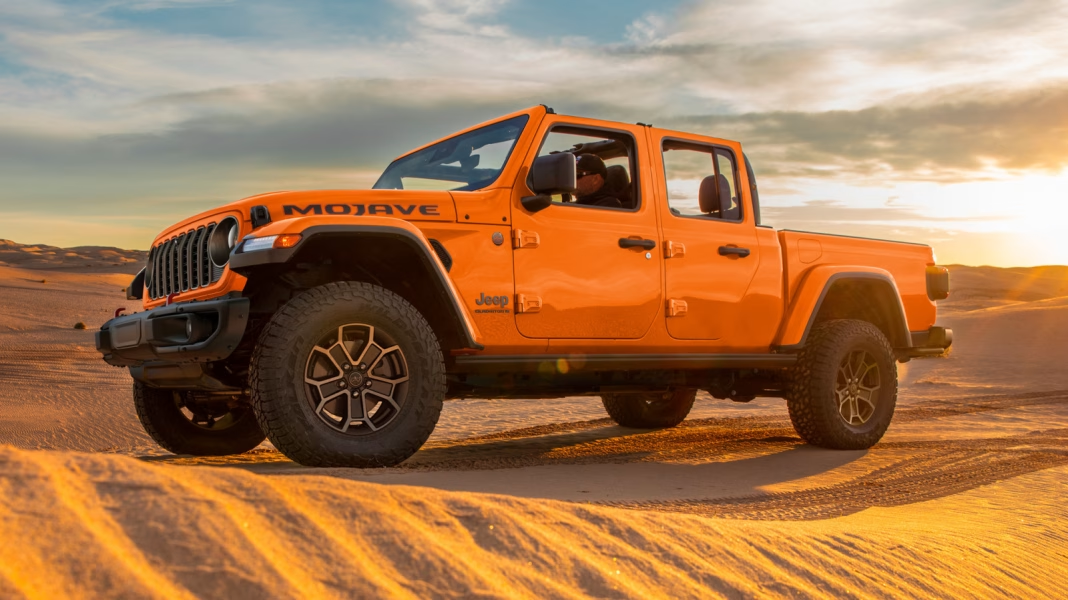Why Was the Jeep Gladiator 4xe Canceled Before Hitting the Road?
You might have heard whispers about the Jeep Gladiator 4xe—a plug-in hybrid pickup that promised to blend off-road muscle with eco-friendly tech. But here’s the twist: it never even made it to showrooms. So, what happened? Why would Jeep pull the plug on a truck before it even had a chance to prove itself?
Industry insiders point to a mix of shifting priorities and tough market realities. The plug-in hybrid Wrangler 4xe has been a runaway hit, outselling every other plug-in hybrid in the United States in 2023, according to data from the U.S. Department of Energy. But the Gladiator? It’s a different beast. Pickup buyers tend to be more traditional, often prioritizing towing capacity and ruggedness over electrification. Jeep may have sensed that the hybrid Gladiator would struggle to find its audience, especially as full-electric trucks like the Ford F-150 Lightning and Rivian R1T are grabbing headlines and market share.
Did Consumer Demand Play a Role in Jeep’s Decision?
It’s no secret: automakers live and die by what buyers want. And while hybrid SUVs are having a moment, plug-in pickup trucks are still a tough sell. A recent survey from Cox Automotive found that less than 20% of truck shoppers are seriously considering a hybrid or electric pickup as their next vehicle. That’s a big gap compared to the 40% of SUV buyers open to electrification.
Jeep likely ran the numbers and realized the Gladiator 4xe would face an uphill battle. The cost of developing and launching a new hybrid model isn’t small change—especially if the return on investment looks shaky. Instead, Jeep seems to be doubling down on its core strengths: gas-powered and full-electric models with proven demand.
How Does This Impact Jeep’s Electrification Strategy?
Jeep’s electrification plans are still moving full steam ahead, even with the Gladiator 4xe’s abrupt exit. The Wrangler 4xe continues to lead the pack, and the brand has already teased fully electric models like the Recon and Wagoneer S. Jeep’s parent company, Stellantis, has committed to investing over $35 billion in electrification and software by 2025, according to their latest investor reports.
So, while the Gladiator 4xe won’t be part of the lineup, Jeep’s broader push toward greener vehicles is far from stalled. The company is simply choosing its battles, focusing on models and segments where hybrid and electric tech are more likely to resonate with buyers.
What Does This Mean for Hybrid and Electric Trucks in General?
The Gladiator 4xe’s cancellation isn’t just a Jeep story—it’s a snapshot of the challenges facing hybrid pickups across the industry. Full-size electric trucks are making waves, but plug-in hybrids are stuck in a kind of no-man’s-land. They’re not as efficient as full EVs, but they’re pricier than traditional gas models. For many buyers, the math just doesn’t add up.
That said, the market is evolving fast. As battery costs drop and charging infrastructure improves, more truck shoppers may warm up to electrified options. Automakers are watching closely, ready to pivot if demand shifts.
Are There Lessons for Shoppers and Enthusiasts?
If you were holding out for a Gladiator 4xe, it’s normal to feel disappointed. But there’s a silver lining: the hybrid and electric truck market is still young, and competition is heating up. Ford, Chevrolet, and Rivian are all pushing boundaries, and Jeep’s own electric plans are just getting started. For now, the Wrangler 4xe remains a solid choice for those who want off-road chops with a greener edge.
The big takeaway? The future of electrified trucks isn’t about perfection—it’s about smarter adjustments. Start with one change this week, and you’ll likely spot the difference by month’s end.


